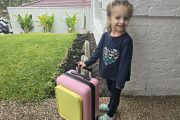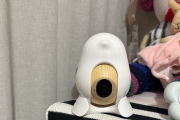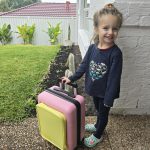Ali’s Story: Finding Support for Postnatal Depression
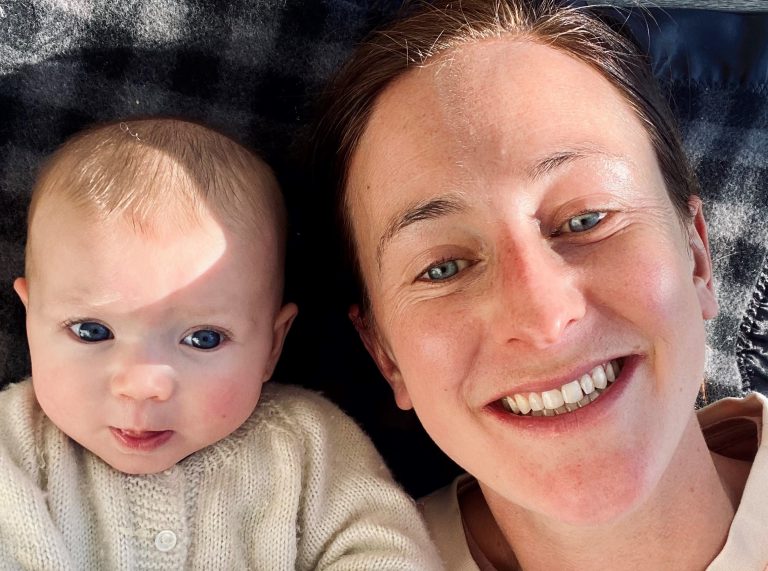
Hello, my name is Ali. I am married to Andrew and we have two daughters, Claudia (4) and Georgina (2). I am a Physiotherapist with a special interest in women’s health/pelvic health and a proud PANDA ambassador.
I didn’t expect I would find pregnancy and parenthood hard. I thought I was going to be one of those mums who breezed through it all. No one seemed to talk openly about the challenges of being a parent which made me feel like I was alone in my struggles. “Enjoy every minute” was the narrative. This was far from my reality.
After 12 months of trying to conceive, I fell pregnant. Unfortunately, I miscarried a week later. My world came crashing down and I was devastated that, seemingly, everyone else could get (and stay) pregnant so effortlessly. I now know that many people struggle with fertility.
I was delighted when I fell pregnant again with assistance from our fertility specialist, but I spent the majority of the first trimester waiting for a subsequent miscarriage. From a physical perspective, the pregnancy was very straightforward. Emotionally, I was not great. I was paralysed with fear that everything I ate, drank or put on my body would somehow result in the death of my unborn child.
My GP could see that my anxiety was spiralling out of control. She recommended I start seeing the psychologist that I had seen previously. In the final six weeks of pregnancy, I presented to the emergency department multiple times, convinced that my baby had passed away.
Realising That It Was More Than ‘Baby Blues’
I noticed that I was having difficulty with my mental health a few weeks after the birth, when the ‘baby blues’ persisted. I was so sleep deprived with a colicky baby and I had severe pelvic floor trauma. Not being able to exercise due to my pelvic floor was, for me, the worst possible punishment.
I have always been a runner – it is my therapy and my ‘me time.’ To not be able to run was tough. We experienced extra challenges because of the pandemic lockdowns, and I felt completely isolated. Lockdown meant that there was no one (other than my husband) around to see what I was going through. It was the perfect storm for the onset of postnatal depression.
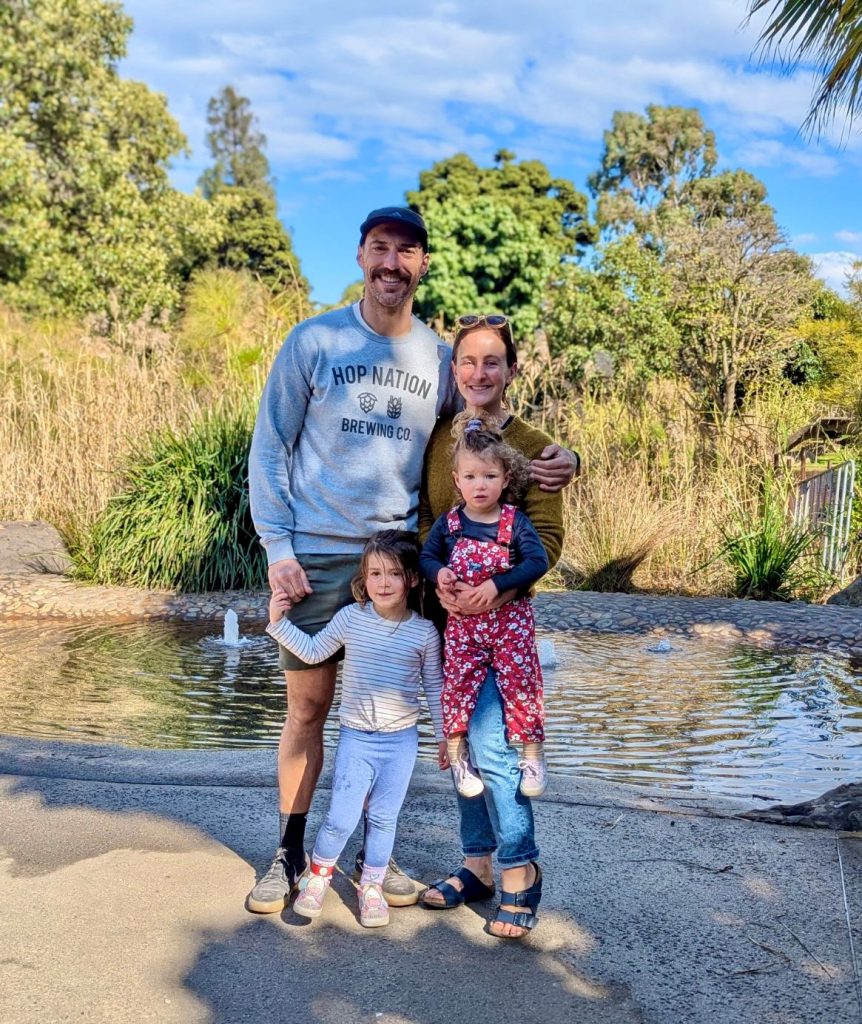
Seeking Help and How Life Improved
My husband was a wonderful support. I didn’t share what I was going through with anyone else because I was embarrassed. I had become an expert at concealing my mental health issues and putting on a happy front. The biggest challenge was admitting to myself and others that I wasn’t doing so well. However, I knew I needed to find help once I felt suicidal.
I saw my GP, who was a great support. I remember speaking to my GP at my postnatal check-up and telling her how I longed for my old life. The life where I did what I wanted, when I wanted and was able to achieve anything I put my mind to. She referred me to an excellent psychologist. I also confided in a friend who ended up being something of a lifeline for me.
I felt like I ‘found my feet’ when Claudia was around seven months old. She started sleeping better (and so did we!), she was engaging with us, and we were allowed to see people again in between lockdowns. I was also back at work part-time as a physiotherapist and really enjoyed the interactions with colleagues and clients alike.
Once I found the right support, life was completely different. I felt like I could speak about my experience openly and without judgement. I now view new parents through an entirely different lens and feel that I have grown in compassion for people at this stage of their life.
Unfortunately, I was never made aware of PANDA (Perinatal Anxiety and depression Australia) until I had been through my postnatal depression with Claudia. Following Georgina’s birth, when I started to feel overwhelmed, I was prompted to access PANDA’s online resources. I now recommend these to friends and clients if I suspect they may need some extra support.
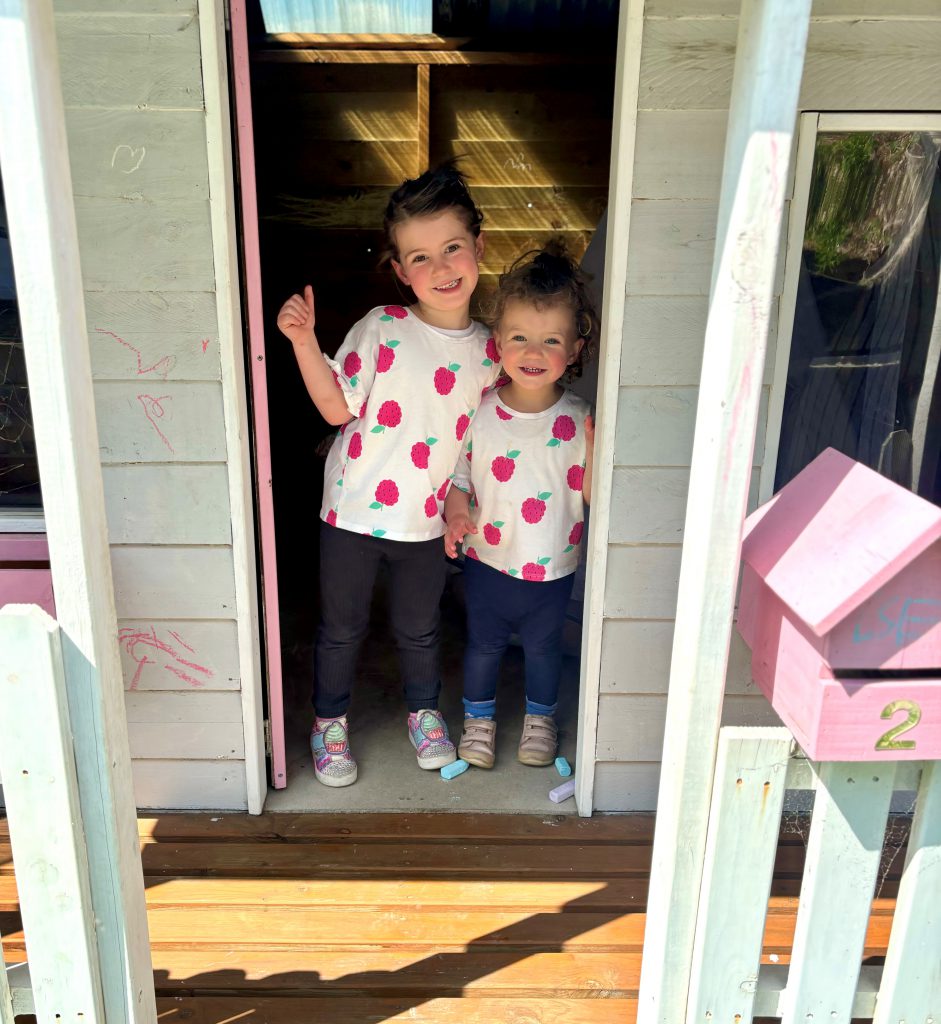
How I Support My Mental Health and Wellbeing
To support my mental health, I take medication, I see my psychologist, I prioritise sleep, exercise and nutrition, as well as time on my own. I work in a people-facing role and otherwise I’m around my family. I barely get any time in solitude, so I value time to myself. I run 3-4 times a week and I have joined a local mum’s running group for the social benefits.
I have since had pelvic floor surgery and am now able to, after four years of incontinence and pain, run without symptoms. This has been nothing short of life changing for me.
I still have many moments within a day where I feel stressed, overwhelmed and exhausted. It is, however, very different to those thoughts and feelings I experienced in the thick of my mental illness. Depression is a dark, terrifying and lonely place. Andrew has been my rock throughout these rough patches. He knows my triggers and tries his best to support me when I am feeling anxious or low.
For other parents experiencing something similar, my advice would be to ask for help and do it early. There are so many that suffer unnecessarily in silence. I now make a real effort to check in with new parents and, where geographically possible, enjoy cooking and delivering homemade meals. As we are all told, everything in the scheme of parenting is a phase. It’s about having the support, skills and community to get through the phase and reap the knowledge on the other side.
I will be forever grateful for PANDA and will continue to promote PANDA’s services and resources to all new and expecting parents.
PANDA IS COMMITTED TO PROVIDING THE BEST POSSIBLE SERVICES AND SUPPORTS TO OUR COMMUNITY.
If you are an expecting parent, new parent, or support person looking for safe, caring, and confidential space to talk, the PANDA National Helpline is available on:
1300 726 306
Monday to Friday, 9am – 7.30pm
Saturday, 9am – 4pm (AEST/AEDT)
If you are having suicidal thoughts or are feeling disoriented it’s important to get help immediately. PANDA is not a crisis service, if you need immediate support call Lifeline 13 11 14 (24/7).
CALL 000 for police and ambulance if you or someone else are in immediate danger.















